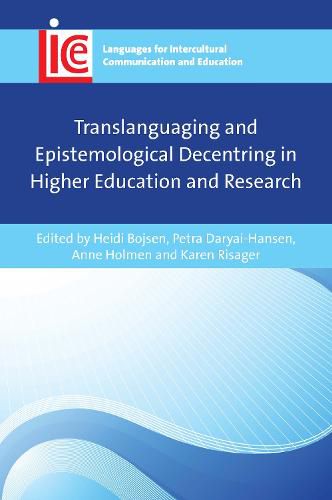Readings Newsletter
Become a Readings Member to make your shopping experience even easier.
Sign in or sign up for free!
You’re not far away from qualifying for FREE standard shipping within Australia
You’ve qualified for FREE standard shipping within Australia
The cart is loading…






Using data from multilingual settings in universities and adjacent learning contexts in East Asia, North Africa, Central and North America and Europe, this book provides examples of the heuristic value of translanguaging and epistemological decentring. Despite this and other theoretical and empirical work, and ever stronger calls for the inclusion of other languages, epistemologies and constructions of culture in higher education, decentring and translanguaging practices are often relegated to the margins or suppressed in research and education because of the organisational structures of education institutions and prevailing language norms, policies and ideologies. The authors draw on research on pluri- and multilingualism within education studies, as well as post- and decolonial theoretical contributions to the research on the role of language in education and knowledge production, to provide evidence that decentring cannot happen until learners have been given the tools to identify which sorts of centring dynamics and conditions are salient to their learning and (trans)languaging.
$9.00 standard shipping within Australia
FREE standard shipping within Australia for orders over $100.00
Express & International shipping calculated at checkout
Using data from multilingual settings in universities and adjacent learning contexts in East Asia, North Africa, Central and North America and Europe, this book provides examples of the heuristic value of translanguaging and epistemological decentring. Despite this and other theoretical and empirical work, and ever stronger calls for the inclusion of other languages, epistemologies and constructions of culture in higher education, decentring and translanguaging practices are often relegated to the margins or suppressed in research and education because of the organisational structures of education institutions and prevailing language norms, policies and ideologies. The authors draw on research on pluri- and multilingualism within education studies, as well as post- and decolonial theoretical contributions to the research on the role of language in education and knowledge production, to provide evidence that decentring cannot happen until learners have been given the tools to identify which sorts of centring dynamics and conditions are salient to their learning and (trans)languaging.